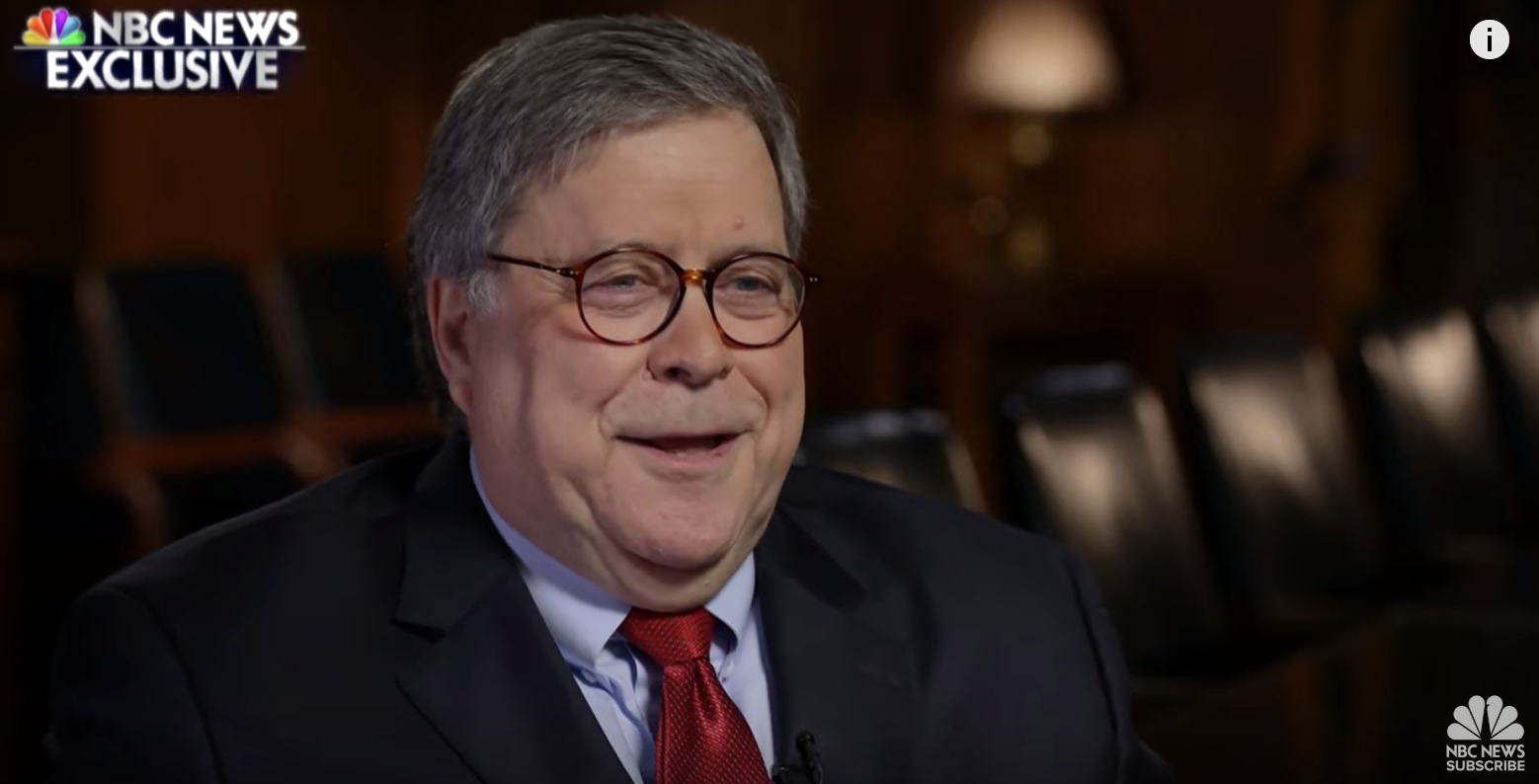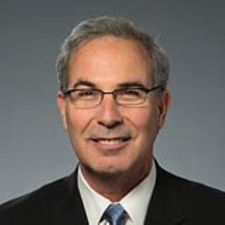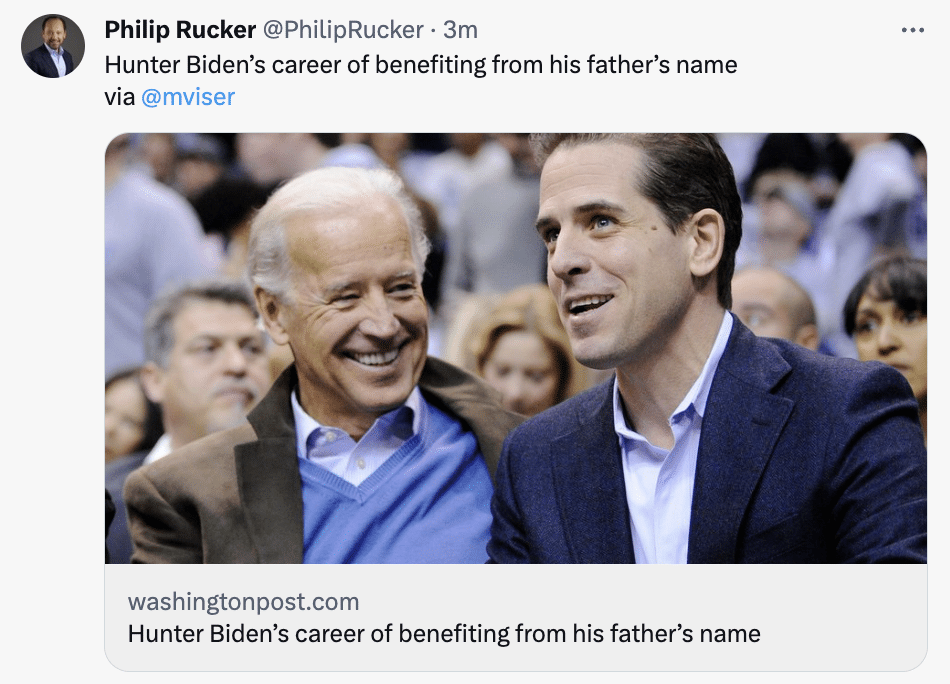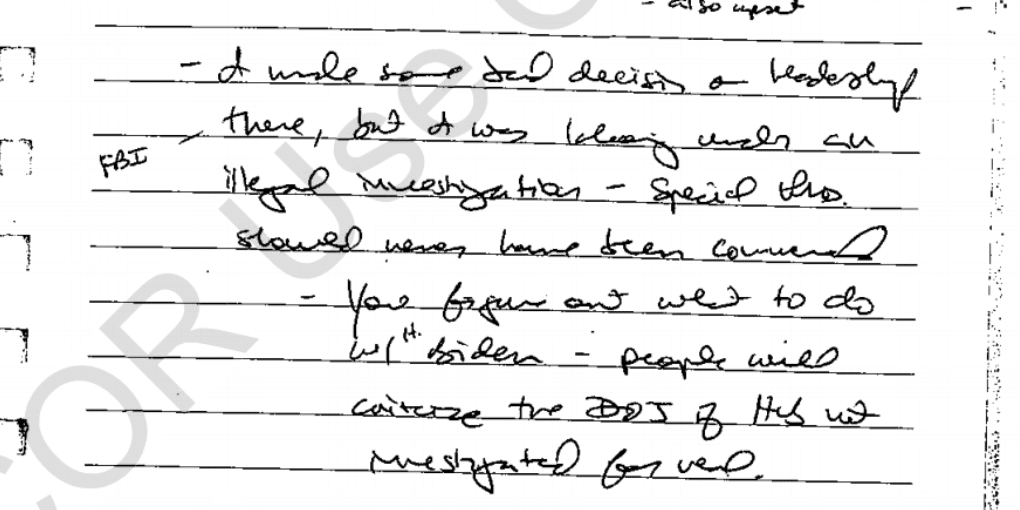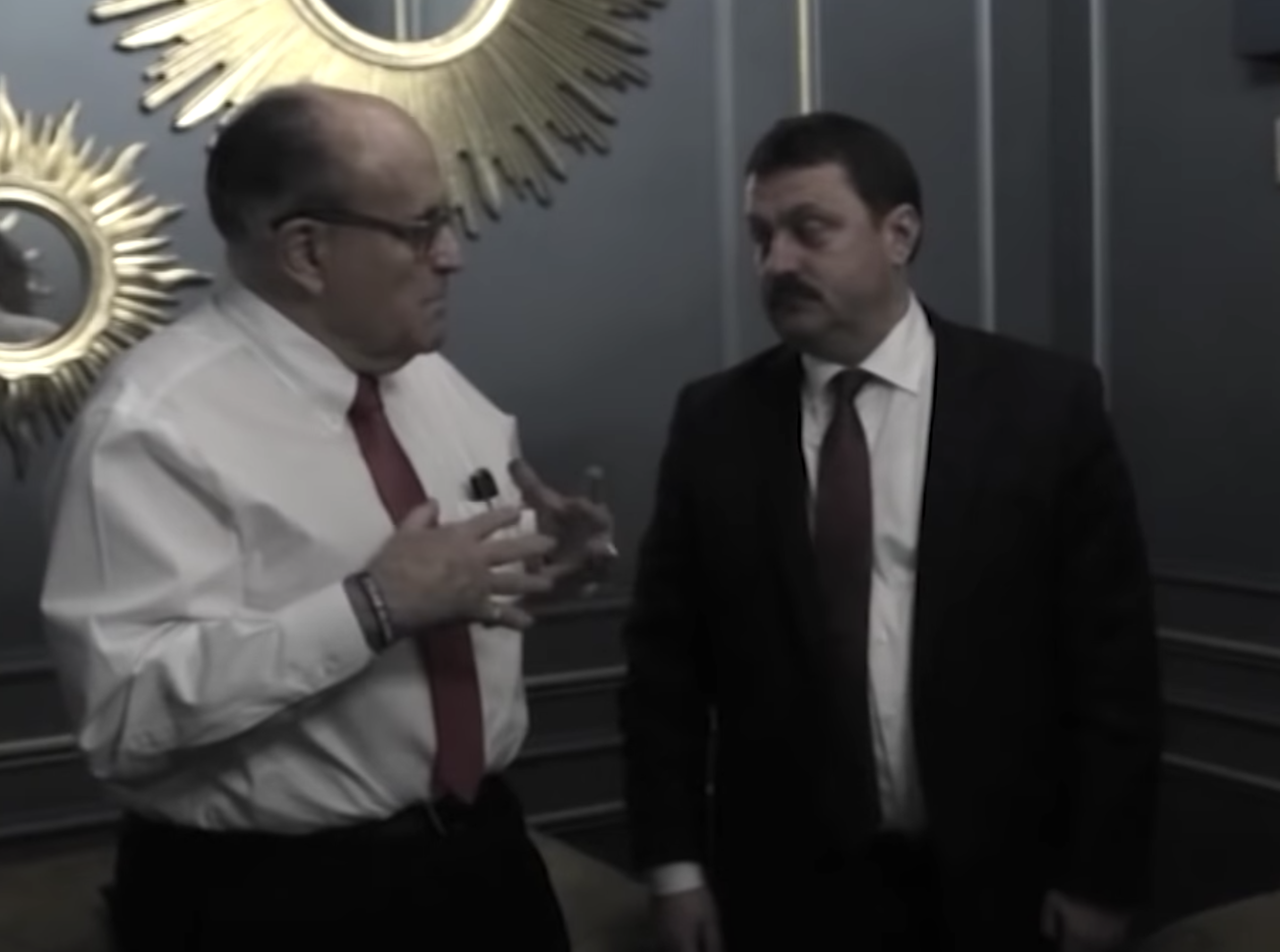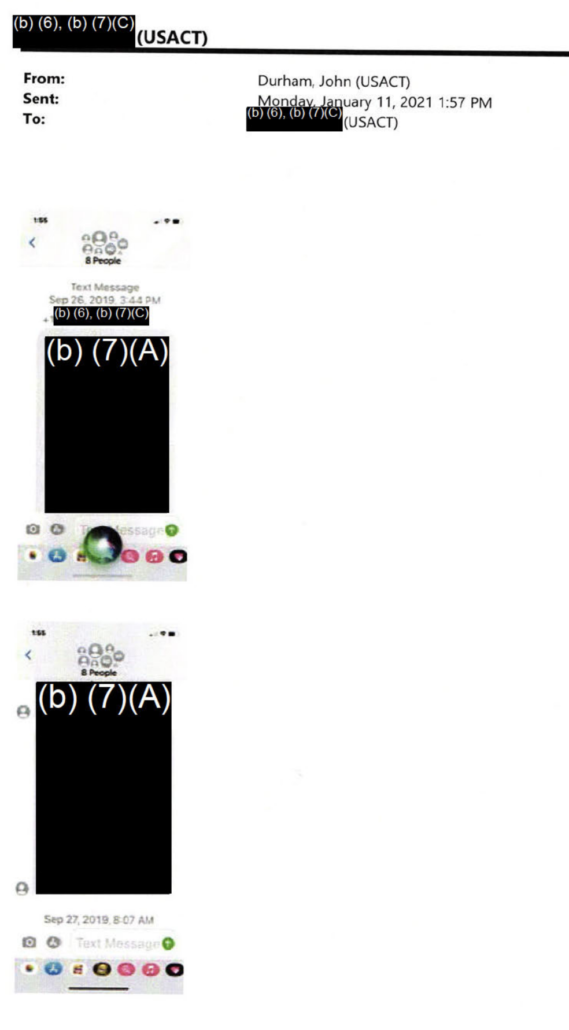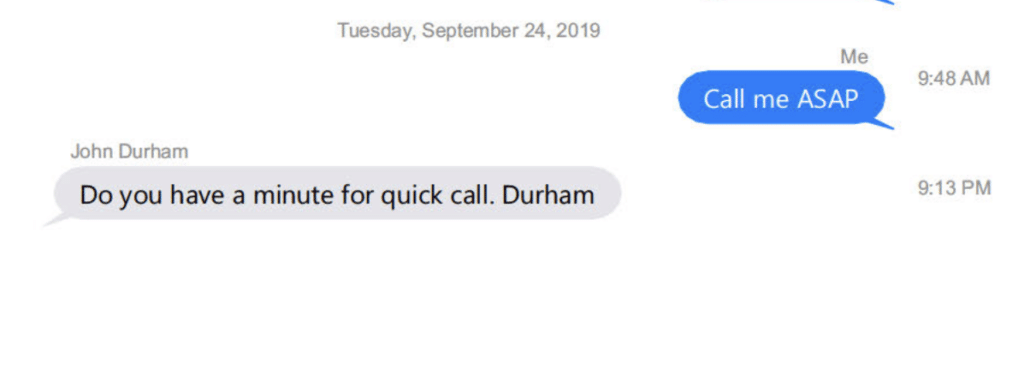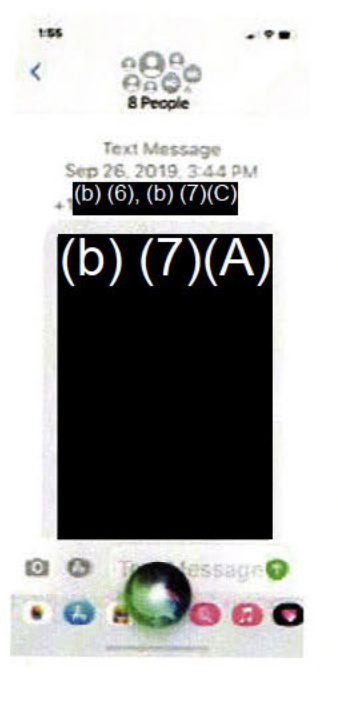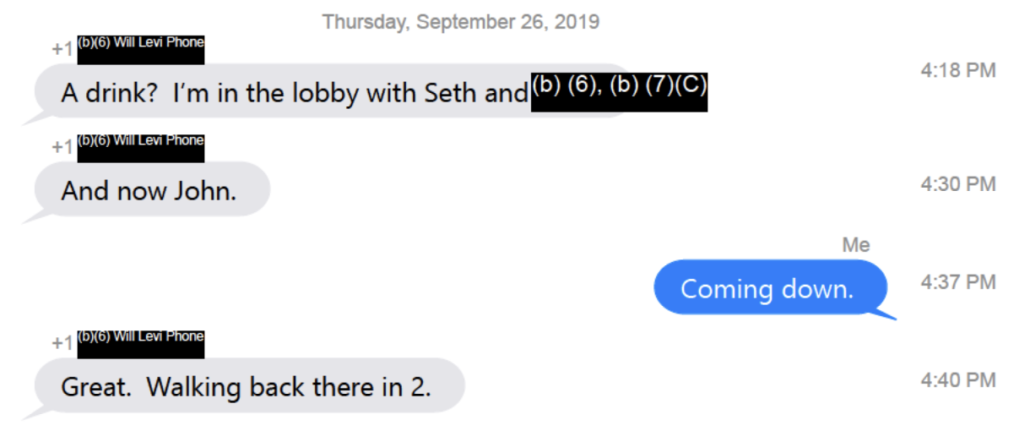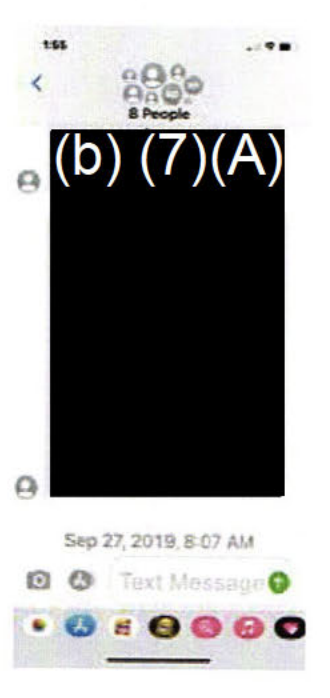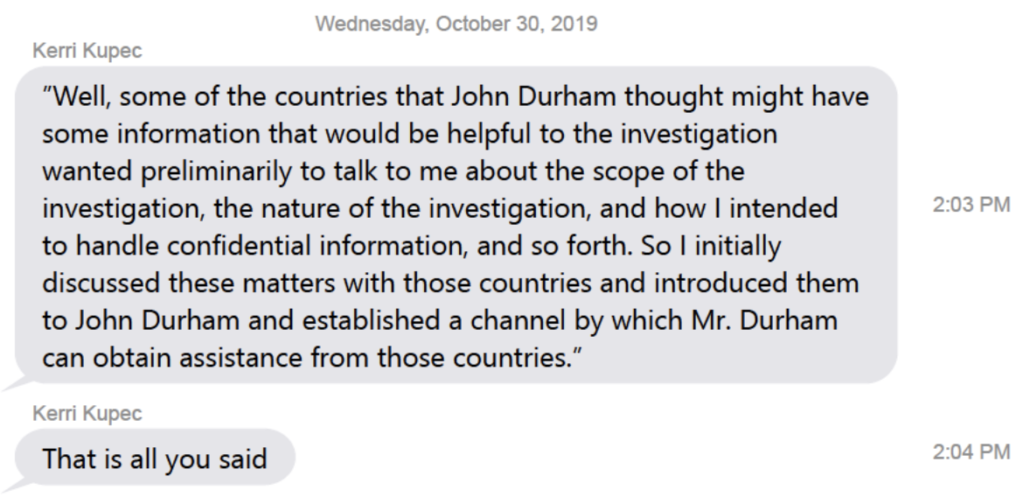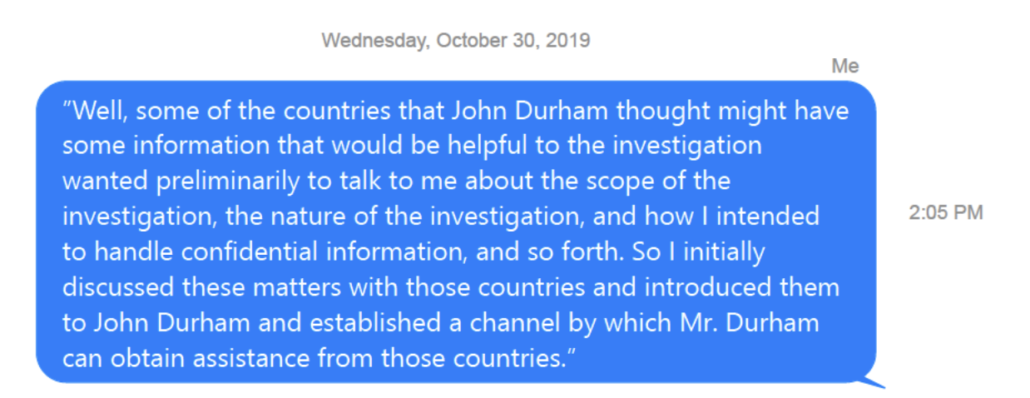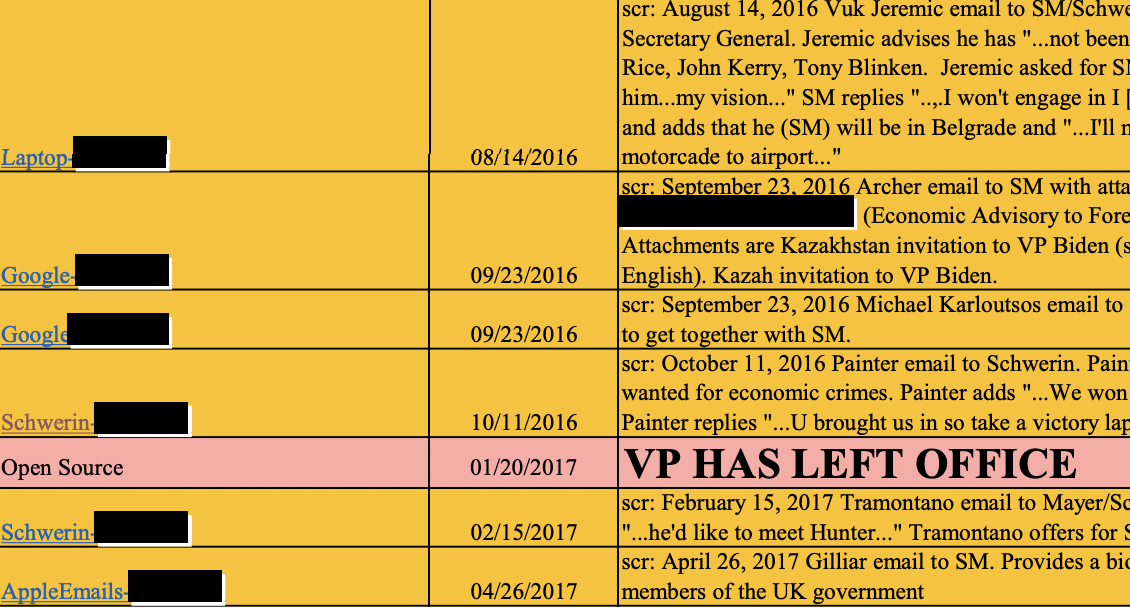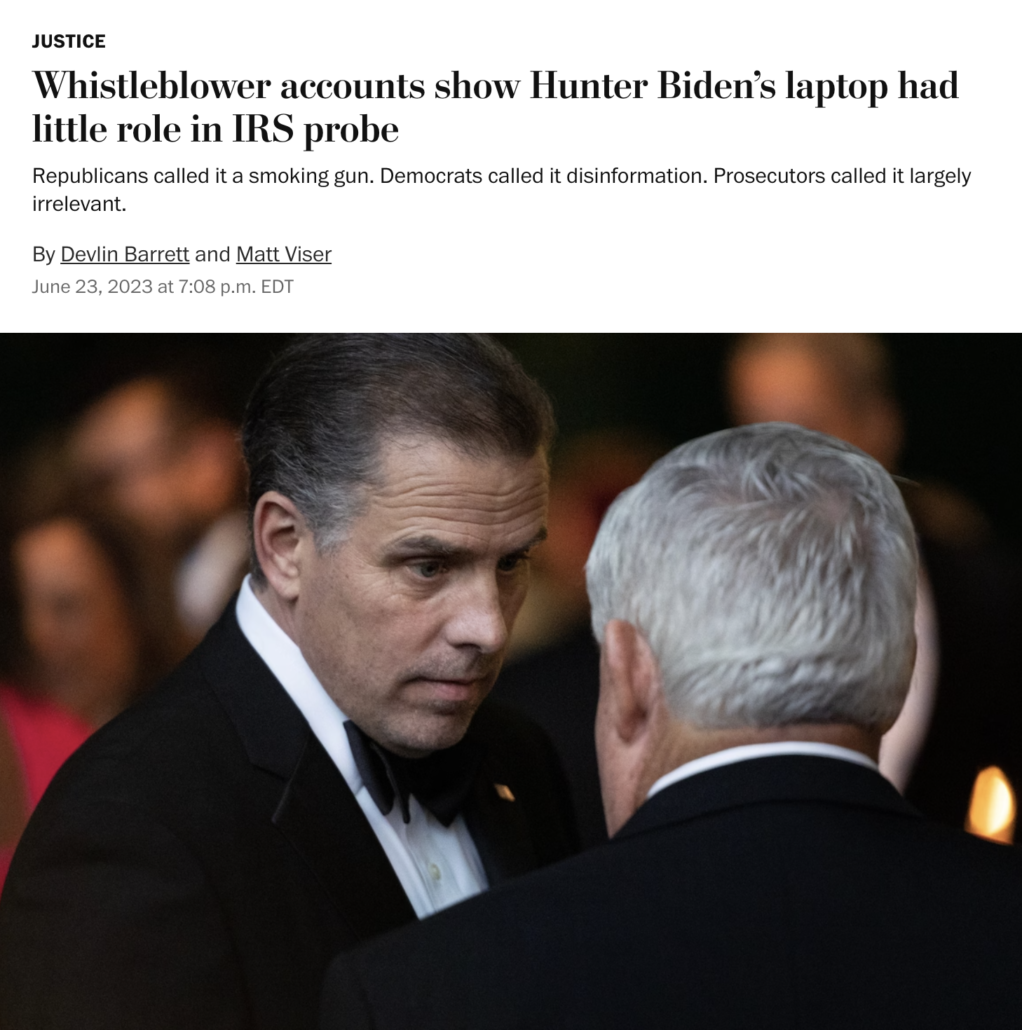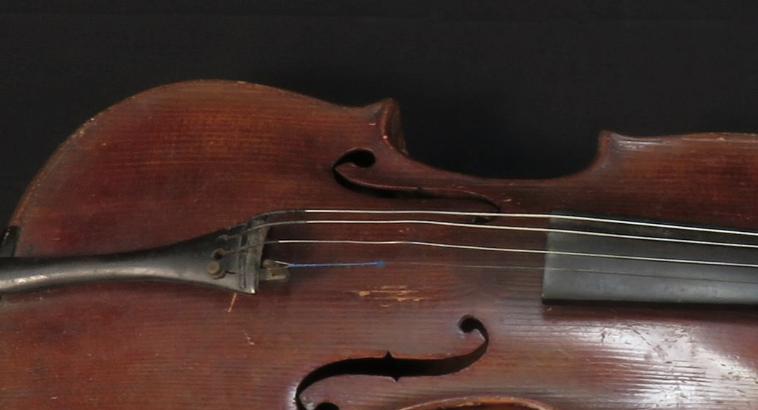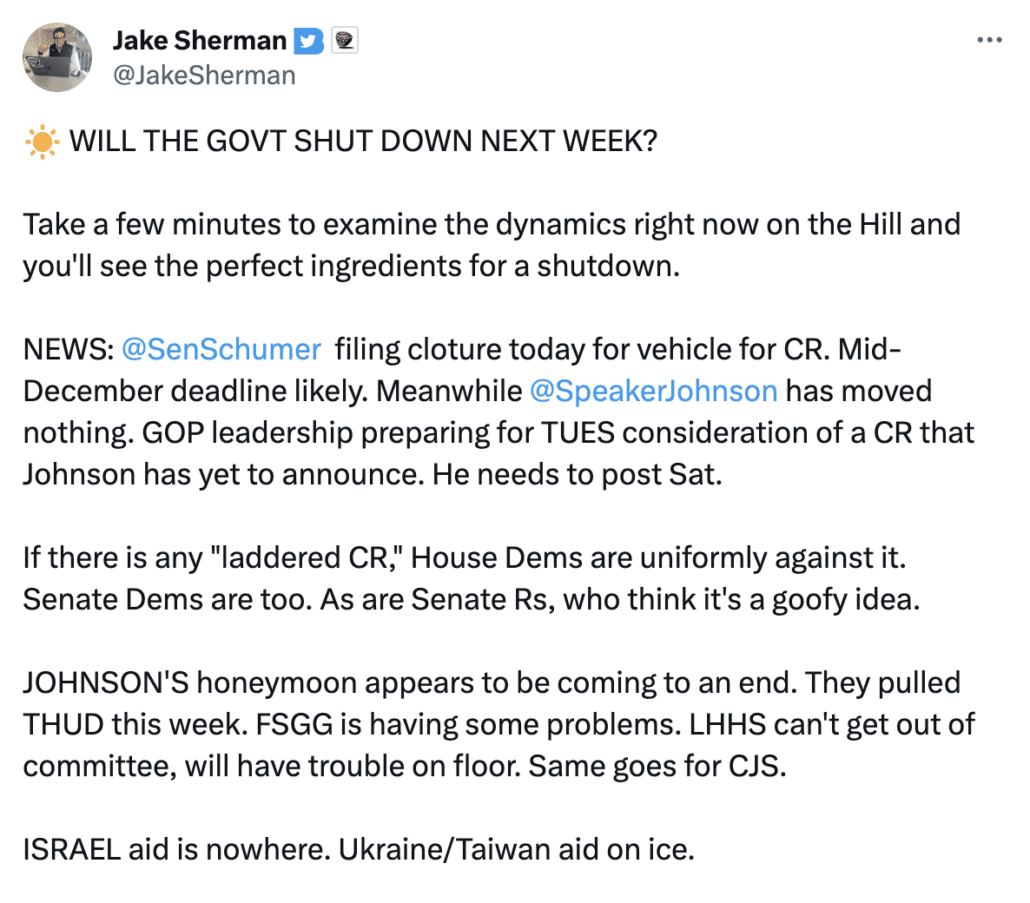In an Attempt to Claim Vindictive Prosecution, Trump Confesses Biden Hasn’t Interfered Like He Has
To substantiate a claim that Joe Biden ginned up the twin prosecutions against him (motion, reply), Donald Trump picked two clauses (in italics) in an article (live link) that repeatedly describes the various ways that Biden and Merrick Garland have restored the independence to the Department of Justice from what it had been under Trump.
The attorney general’s deliberative approach has come to frustrate Democratic allies of the White House and, at times, President Biden himself. As recently as late last year, Mr. Biden confided to his inner circle that he believed former President Donald J. Trump was a threat to democracy and should be prosecuted, according to two people familiar with his comments. And while the president has never communicated his frustrations directly to Mr. Garland, he has said privately that he wanted Mr. Garland to act less like a ponderous judge and more like a prosecutor who is willing to take decisive action over the events of Jan. 6.
[snip]
In a statement, Andrew Bates, a White House spokesman, said the president believed that Mr. Garland had “decisively restored” the independence of the Justice Department.
“President Biden is immensely proud of the attorney general’s service in this administration and has no role in investigative priorities or decisions,” Mr. Bates said.
A Justice Department spokesman declined to comment.
The Jan. 6 investigation is a test not just for Mr. Garland, but for Mr. Biden as well. Both men came into office promising to restore the independence and reputation of a Justice Department that Mr. Trump had tried to weaponize for political gain.
[snip]
Complicating matters for Mr. Biden is the fact that his two children are entangled in federal investigations, making it all the more important that he stay out of the Justice Department’s affairs or risk being seen as interfering for his own family’s gain.
The department is investigating whether Ashley Biden was the victim of pro-Trump political operatives who obtained her diary at a critical moment in the 2020 presidential campaign, and Hunter Biden is under federal investigation for tax avoidance and his international business dealings. Hunter Biden has not been charged with a crime and has said he handled
his affairs appropriately.Justice Department officials do not keep Mr. Biden abreast of any investigation, including those involving his children, several people familiar with the situation said. The cases involving Hunter Biden and Ashley Biden are worked on by career officials, and people close to the president, including Dana Remus, the White House counsel, have no visibility into them, those people said.
[snip]
Officials inside the White House and the Justice Department acknowledge that the two men have less contact than some previous presidents and attorneys general, particularly Mr. Trump and his last attorney general, William P. Barr.
Some officials see their limited interactions as an overcorrection on the part of Mr. Garland and argue that he does not need to color so scrupulously within the lines. But it may be the only logical position for Mr. Garland to take, particularly given that both of Mr. Biden’s children are involved in active investigations by the Justice Department.
The distance between the two men is a sharp departure from the previous administration, when Mr. Trump would often call Mr. Barr to complain about decisions related to his political allies and enemies. Such calls were a clear violation of the longtime norms governing contact between the White House and the Justice Department.
Mr. Biden, a former chairman of the Senate Judiciary Committee, came to his job as president with a classical, postWatergate view of the department — that it was not there to be a political appendage. [my bold and italics]
Since the two clauses on which Trump relies conform with the evidence presented in the rest of the article — which is to say, they show that Biden has taken no steps to share his views with the Attorney General — Trump simply invents something that’s not in the article: a claim that Biden deliberately planted these quotes as a way to give Garland an order to prosecute Trump.
The Biden administration intentionally leaked these comments to the media in early 2022 so that President Biden could improperly provide instructions to and exert pressure on prosecutors and investigators without engaging in direct communications, as is clear from the fact that the article sourced the operative remark to “two people familiar with his comments.” Id.
Trump then dismisses prosecutors’ argument that such anonymous claims are not evidence by likening the misrepresentation of the article to three times Jack Smith prosecutors cited newspaper reports.
The reports at issue are not, as the prosecution claims, based on “rumor and innuendo.” Doc. 141 at 6. The Washington Post article is “based on internal documents, court files, congressional records, handwritten contemporaneous notes, and interviews with more than two dozen current and former prosecutors, investigators, and others with knowledge of the probe.” Doc. 116-1 at 3. The New York Times article is attributed to “interviews with more than a dozen people, including officials in the Biden administration and people with knowledge of the president’s thinking, all of whom asked for anonymity to discuss private conversations.” Doc. 116-2 at 2. For example, President Biden’s instruction that President Trump “should be prosecuted” is sourced to “two people familiar with his comments.” Id
7 See, e.g., Doc. 97 at 10; Doc. 109 at 30; Doc. 140 at 11.
Those three reports are:
A citation to a threat included in a WaPo report.
6 See Washington Post, FBI Joins Investigation of Threats to Grand Jurors in Trump Georgia Case, (Aug. 18, 2023), https://www.washingtonpost.com/nationalsecurity/2023/08/18/fbi-joins-investigation-threats-grand-jurors-trump-georgia-case/ (citing an online post stating, “These jurors have signed their death warrant by falsely indicting President Trump”)
A reference to the fact that Clinton entered into a deal to avoid indictment when he left office:
The same is true for President Clinton’s “forthright admission that he gave false testimony under oath” about matters occurring during his presidency in order to avoid indictment after his presidency. See John F. Harris & Bill Miller, In a Deal, Clinton Avoids Indictment, Washington Post (Jan. 20, 2001). 12
12 https://www.washingtonpost.com/archive/politics/2001/01/20/in-a-deal-clinton-avoids-indictment/bb80cc4c-e72c-40c1-bb72-55b2b81c3065/.
Factual details about the identities and now proven — all have now either been convicted or pled guilty — crimes of members of the J6 choir with whom Trump made a video.
The January 6 Choir includes defendants who assaulted law enforcement officers on January 6 and one who used chemical spray on a Capitol Police officer who died the next day. See Washington Post, Behind Trump’s Musical Tribute to Some of the Most Violent Jan. 6 Rioters (May 7, 2023), https://www.washingtonpost.com/investigations/interactive/2023/trump-j6-prison-choir/
This insane argument, which effectively insists on the truth value of the NYT article that states over and over that Biden has not done what Trump did to politicize investigation as part of a bid to claim that Biden has politicized this investigation comes after Hunter Biden made a bid to subpoena Trump for evidence of how he did interfere in the investigation of Joe Biden’s son.
Instead of anonymous quotes that actual confirm Biden hasn’t spoken with Garland about these investigations, Abbe Lowell relied on eight public tweets, including one blasting David Weiss and calling for a death sentence for Hunter.
D. Trump Truth Social post on July 11, 2023: “Weiss is a COWARD, a smaller version of Bill Barr, who never had the courage to do what everyone knows should have been done. He gave out a traffic ticket instead of a death sentence. Because of the two Democrat Senators in Delaware, they got to choose and/or approve him. Maybe the judge presiding will have the courage and intellect to break up this cesspool of crime. The collusion and corruption is beyond description. TWO TIERS OF JUSTICE!”
Another of the tweets in the bid for subpoenas denied any involvement in the prosecution ten days before — notes from Richard Donoghue show — Trump interjected a complaint about Hunter Biden’s treatment amid complaints that DOJ wasn’t backing Trump’s false claims about election fraud, both of which led up to a threat to replace Jeffrey Rosen with Jeffrey Clark.
For example, on December 27, 2020, then Deputy Attorney General Donoghue took handwritten notes of a call with President Trump and Acting Attorney General Rosen, showing that Mr. Trump instructed Mr. Rosen and Mr. Donoghue to “figure out what to do with H[unter] Biden” and indicating Mr. Trump insisted that “people will criticize the DOJ if he’s not investigated for real.”
[snip]
D. Trump tweet on December 17, 2020: “I have NOTHING to do with the potential prosecution of Hunter Biden, or the Biden family. It is just more Fake News. . . .” [emphasis original]
Side note: Lowell very graciously didn’t point out that Donoghue, in his January 6 testimony, tried to spin these notes to make them less damning then they are, possibly up to including adding an “H” after the fact to pretend that Trump didn’t also consider the investigation of the son to be an effort to get to the father, as Trump’s earlier tweet made clear he did and does.
It wasn’t just Jeffrey Rosen with whom Trump raised the Biden investigation. Lowell also cited the passage from Barr’s book where Trump raised Hunter directly with the Attorney General.
Additionally, former Attorney General Barr’s latest book recalls an instance in mid-October 2020 in which President Trump called Mr. Barr and inquired about the investigation of Mr. Biden, which Mr. Barr says ended with Mr. Barr yelling at Mr. Trump, “Dammit, Mr. President, I am not going to talk to you about Hunter Biden. Period!”
And Lowell cited the reference to the briefing Scott Brady’s team did with David Weiss’ team to share an allegation Mikola Zlochevsky made sometime close to the time when, according to Chuck Grassley, Barr’s DOJ shut down an investigation into Zlochevsky.
Gary Shapley Aff. 3, attach. 6 (IRS CI Memorandum of Conversation, Oct. 22, 2020), (“Pittsburgh read out on their investigation was ordered to be received by this prosecution team by the PDAG.”), available at https://gopwaysandmeans.house.gov/wp-content/uploads/2023/09/T87-Shapley-3_Attachment-6_WMRedacted.pdf.
Lowell did not close the loop on this to show Barr confessing to personal knowledge of Brady’s project and the details of how the FD-1023 memorializing the Zlochevsky allegation got shared with Weiss, tantamount to a confession that he lied in his book. Nor did Lowell mention the Perfect Phone Call in which Trump asked the President of Ukraine to work with Barr to investigate the Bidens or the allegation that Trump’s handlers had removed a damning reference to Burisma.
You’re with me so far, right? In support of a claim that Joe Biden has interfered in the prosecutions of Trump, Trump demands that DOJ treat as reliable an article that says, in about seven different ways, that Biden doesn’t do that. And Trump did that a week after Hunter’s lawyer laid out eight tweets, two memorializations of conversations with Trump, two primary documents, and two congressional depositions, all of which show high level involvement and, at least on Trump’s part, attempted interference in the Hunter investigation, which ignores some of the most important public documents memorializing Trump’s interference.
But it gets crazier!
In response to AUSA Thomas Windom’s observation that, “the defendant does not provide the Court with even the roughest sketch of what this ‘fact finding’ would entail or uncover,” Trump says his discovery request already laid that out.
Finally, the Special Counsel’s Office professes confusion about what the fact finding “would entail” and claims that it requires a “rough[] sketch.” Doc. 141 at 14. The Supreme Court has provided one, in a case the Office cited: “the Government must assemble from its own files documents which might corroborate or refute the defendant’s claim.” Armstrong, 517 U.S. at 464. So too have our discovery requests. See Ex. 2 (10/23/23 Requests 10-12, 24, 39-40, 43, 55).
The requests he points to are:
Conduct alleged in the indictment, and responses by witnesses described in the indictment (as well as a letter he includes with this filing, showing two prosecutors in this case attempted to persuade Bill Barr to adhere to normal procedures after the election).
11. Please provide all documents related to views and opinions expressed by Department of Justice personnel, including from the Public Integrity Section and National Security Division, discouraging, disagreeing with, or resisting investigations of election fraud, interference (including foreign interference), anomalies, or irregularities related to the 2020 election.
12. Please provide all documents related to or reflecting decisions by the Department of Justice, federal law enforcement, state law enforcement, election officials, or other government officials declining or refusing a review or investigation of election fraud, interference (including foreign interference), anomalies, or irregularities related to the 2020 election.
Advice from Steve Engel (who would go on to join in an effort to thwart Trump’s efforts to replace Jeffrey Rosen with Jeffrey Clark), any of which Trump relied upon he could cite specifically.
24. Please provide all documents, including communications, memorandums, and opinions (whether formal written opinions, drafts thereto, or informal analyses), of the Department of Justice Office of Legal Counsel concerning the Electoral Count Act, election fraud, any litigation related to the 2020 election, or any advice provided directly or indirectly to any Executive Branch official concerning the outcome of the 2020 election.
Any discipline DOJ pursued for Michael Sherwin for violating rules that were routinely violated under Trump.
40. Please provide all documents relating to the March 2021 “60 Minutes” interview of Michael Sherwin, including all documents relating to investigations of potential violations of applicable rules, policies, or procedures resulting from Mr. Sherwin’s participation in the interview.
A known referral of fake electors from Dana Nessel.
39. Please provide all documents relating to the “referrals” referenced by Lisa Monaco during an interview on or about January 25, 2022.
A fishing expedition to get the kind of inflammatory texts that were selectively released during the Russian investigation, to obtain the texts everyone sent on their FBI cell phones).
55. Please provide all documents reflecting statements by any member of the prosecution team indicating an intent or effort to stop or hinder President Trump from becoming President of the United States.
Complaints that, broadly interpreted, could include those from Gary Shapley and Joseph Ziegler that instead show the high level involvement of Trump’s DOJ in the Hunter Biden investigation and the investigators own efforts to conduct the investigation in such a way that it might become public.
10. Please provide all documents relating to complaints or concerns by any prosecutor from DOJ, the Special Counsel’s Office, or any federal law enforcement agent relating to the conduct of the investigations of President Trump, the 2020 election, or President Biden.
A request for communications that, the NYT article he relies on, says don’t exist: “coordination” between Biden and DOJ or the Special Counsel’s office. But also a request for communications that might, broadly interpreted, cover the entirety of Hunter Biden’s defense counsel communications with DOJ. (It would also include any victim interviews with Ashley Biden regarding her diary and other personal belongings stolen by Trump supporters.)
43. Please provide all documents relating to communications or coordination by the Special Counsel’s Office and DOJ with any of the Biden Administration, the Biden Campaign, Hunter Biden, the Biden family, the Biden White House, or any person representing Joe Biden. [my emphasis]
DOJ’s criminal prosecutors are not communicating with Joe Biden. They are, however, communicating with Hunter Biden (via his counsel) because Trump’s own US Attorney, now bolstered with Special Counsel status, is prosecuting Hunter Biden. And after having attacked Weiss publicly, Trump is now claiming that he needs Hunter Biden’s communications to prove Donald Trump is being treated unfairly.
The primary thing on which Trump relies to make a claim he’s being treated unfairly instead supports the opposite claim: That Merrick Garland is treating him better than he and his DOJ treated Joe Biden’s son. But in his effort to claim he wasn’t simply inventing all this, Trump revealed that even in this prosecution, he’s attempting to interfere in Hunter Biden’s prosecution.

